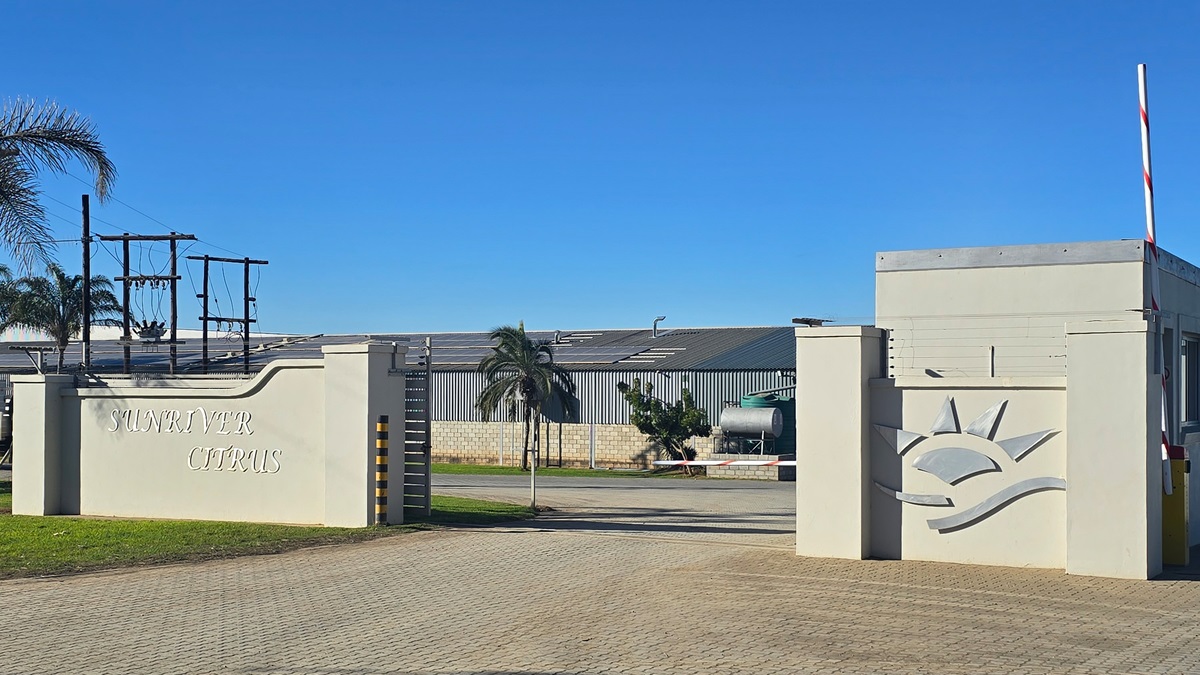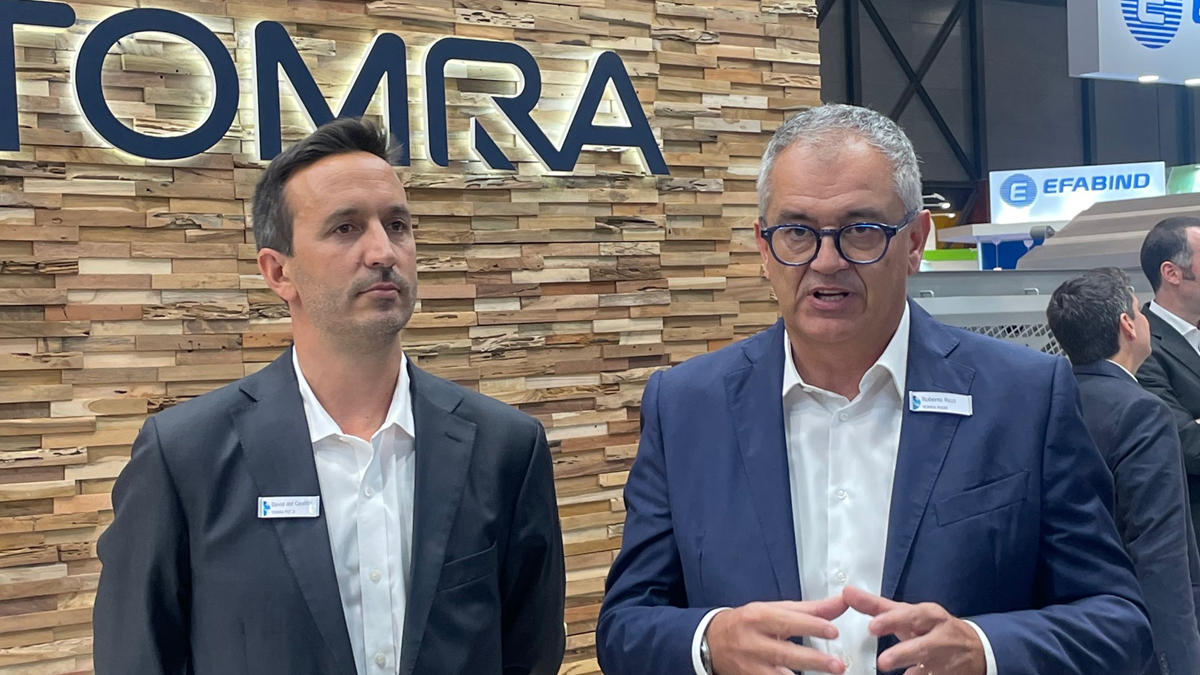Conditioning , Processing
How closer collaboration between solutions suppliers is keeping processors and packhouses ahead of the game
Machines on food processing lines talk to each other. Not in a fantastical way, like something in Toy Story or sci-fi movies, but by silently exchanging data while the line is operating. This is what enables different kinds of line equipment from different manufacturers to work together. But this also raises questions. For instance, why don?t machine manufacturers communicate more with each other when designing their machines to ease the integration of their various line solutions? Could non-competing manufacturers go further than this and collaborate when designing and developing solutions to ensure perfect machine compatibility? And could larger manufacturers ? those with the greater resources and wider international presence ? work together to provide their machine users worldwide with faster-responding parts supply and technical support?
25 July, 2023
Machines on food processing lines talk to each other. Not in a fantastical way, like something in Toy Story or sci-fi movies, but by silently exchanging data while the line is operating. This is what enables different kinds of line equipment from different manufacturers to work together. But this also raises questions. For instance, why dont machine manufacturers communicate more with each other when designing their machines to ease the integration of their various line solutions? Could non-competing manufacturers go further than this and collaborate when designing and developing solutions to ensure perfect machine compatibility? And could larger manufacturers those with the greater resources and wider international presence work together to provide their machine users worldwide with faster-responding parts supply and technical support? These are questions that TOMRA Food started asking some years ago in its role as the leading designer and manufacturer of sensor-based sorting machines and integrated post-harvest solutions for food production. Questions that go right to the heart of TOMRA's business philosophy of customer-centricity through trusted togetherness. And questions that TOMRA has taken action to answer. Selective partnership-buildingTrusted togetherness is a term used inside TOMRA Food to define its goal of collaborating so closely with processors and packhouses that it becomes their trusted ally. It is this collaboration that enables TOMRA Food to precisely tailor each customers sorting and grading solutions, by first acquiring a detailed understanding of the customers unique operational challenges and priorities. TOMRA thinks of trusted togetherness in another way, too: this also describes TOMRAs working relationships with other providers to the food industry of technical solutions and machine-servicing. This togetherness sometimes leads to the formation of integrated business partnerships. When two technical solutions providers work together closely, with a formally agreed understanding of each other's capabilities and responsibilities, they can support customers better than when working alone. These partnerships are established through a thorough process of preparation and planning. And they can only be established when the values of TOMRA and its potential partner are closely aligned; when each partner's equipment complements the other's; and when the partnership can be confident of providing best-in-class solutions, service, and support. The primary purpose of these partnerships is to help processors and packhouses run more smoothly, become more productive, and make more profit. Strengthening sales and serviceWe can see how TOMRA's business partnerships create greater customer value by looking at a few examples. The most recent is an agreement reached in 2022 between TOMRA and ICOEL, in which ICOEL became a TOMRA Food integrated business partner for Europe and a TOMRA partner in cherry solutions Latin America. ICOEL designs and manufactures fruit handling, processing and packaging equipment everything from bin and crate emptying to treatment, manual packing, automatic boxes, bin-filling systems, and bin handling. Because ICOEL's solutions integrate with TOMRA's solutions, processing and packing plants often use machinery from both. And ICOEL's values emphasizing technological innovation, high-quality standards, and customer relationships are closely aligned with TOMRA's. Today, TOMRA and ICOEL follow the same processes and share information and resources. And now that customer sales and service for both companies' equipment come from one source, it has become possible to provide a one-stop-shop, making customers' lives easier. This partnership is significant, says ICOEL's General Manager, Bruno Stravato, because many more processing applications are becoming interconnected. Closer integration is something our customers want and something that will enable us to enhance the quality of the solutions and services we provide. Collaborative technical innovationAnother significant strategic partnership was established in 2019 between TOMRA Food and Marel, a leading global provider of advanced food processing equipment, systems, software and services to the poultry, meat, and fish industries. Marel is perhaps best known for its SensorX solution, transforming bone detection in the poultry industry. The TOMRA-Marel alliance was also founded on complementary technical solutions and a very similar mindset. Both companies established the partnership with the objectives of helping customers optimize value, reduce waste, and increase food safety. As a first step, each accessed the others distribution and sales networks, offering customers a more comprehensive range of solutions. In the next step, TOMRA and Marel collaborated on research and development. As Marel's CEO, Árni Oddur Thórdarson, put it: Through this partnership, we are advancing to the next phase in sensor-based solutions for our customers. Working together can bring improved systems and food technologies to the food industry. The first evidence of this technical collaboration is Spectra, a foreign material detection solution that is setting new standards in poultry processing and quality control. This cutting-edge product detects surface contaminants such as plastics, rubber, and wood, solving an urgent problem in the poultry industry and it was made possible by combining Marels decades of poultry processing know-how with TOMRAs vast experience in optical sensor technology. This collaboration has resulted in an unrivaled solution that advances food safety. Best-in-class equipment and turnkey solutionsA different type of collaboration is seen in how TOMRA Food works closely with Luciano Aguilar, a Spanish-based machinery distributor. Luciano Aguilar offers customers complete line solutions by representing numerous manufacturers. It is the exclusive distributor in Spain of TOMRA's sorters for processed foods, vegetables, pet food, and seafood. TOMRA and Luciano Aguilar also work closely together in Portugal. Because Luciano Aguilar provides service support for the many different types of machines it sells, its engineers visit customers' premises more often than TOMRA would. This means TOMRA learns more quickly if customers' needs and challenges change. It also means that Luciano Aguilar can keep customers well-informed of the sorting and grading solutions best suited to their needs. This partnership gives food processors fast access to service and support on a day-to-day basis. More broadly, it provides food processors access to the solutions that ensure they keep on achieving optimum results. Another example of trusted togetherness is the partnership between TOMRA Food and Jose Borrell Best-known as the leading provider of lines for shelling, sorting, grading, and packing almonds, Borrell also designs lines for hazelnuts, pistachios, seeds, chopped carob, locust beans, plums, and other nut products. Borrell is TOMRA's exclusive agent in Spain and Portugal for sorting solutions for nuts and dried fruit. The great benefit of this collaboration is that customers get a turnkey solution for a complete line. Combining Borrell's full-line expertise with TOMRA's world-class sorting and grading technologies results in processors receiving the most effective interconnected solutions. And because the customer has to deal only with one party, the potentially complex process of designing the line and specifying machinery is simplified. The top 10 advantages for machine usersAs a result of the trusted togetherness between TOMRA and its business partners, there are many benefits for processors and packhouses: Various line solutions are better integrated, improving line performance and reducing downtime. This ensures every piece of produce acquires its full value, while also reducing food waste, rework, and energy consumption. Machine data can be accessed (via TOMRA Insight) and acted upon to improve efficiencies on the line and in the supply of raw materials. Objective data also empowers businesses to make better-informed operational and strategic decisions. Its simpler for processors and packhouses to work with their solutions providers when they can deal with one contact rather than two or more while still being able to tap into the providers' expertise and knowledge. Solutions, service and support are supplied with a consistently high standard of professionalism for a broader range of line solutions. Sales and support are provided in the customer's native language, wherever they are in the world. And theres a good understanding of customers local needs and requirements, knowing that small nuances can make all the difference in the world. The greater global coverage improves the availability and speed of delivery of spare parts. Support is available 24/7 because of the ability of TOMRA and its partners to log into machines remotely. If there should be issues between equipment from different manufacturers, those manufacturers will work together to fix them. Machine operation and in-house maintenance training can be integrated and streamlined. By combining their expertise, TOMRA and its partners can bring new or updated solutions to market faster. In other words, trusted togetherness between solutions suppliers has the same effect as the trusted togetherness between TOMRA and its customers: its another factor that empowers processors and packhouses to achieve their full potential About TOMRA FoodTOMRA Food designs and manufactures sensor-based sorting machines and integrated post-harvest solutions transforming global food production to maximize food safety and minimize food loss, by making sure Every Resource Counts. These solutions include advanced grading, sorting, peeling and analytical technology to help businesses improve returns, gain operational efficiencies, and ensure a safe food supply. The company has more than 13,800 units installed at food growers, packers and processors around the world for Confectionery, Fruit, Dried fruit, Grains and Seeds, Potatoes, Proteins, Nuts, and Vegetables. TOMRA Food operates centers of excellence, regional offices and manufacturing locations within the United States, Europe, South America, Asia, Africa and Australasia. Follow TOMRA Food on Facebook @TOMRA.Food, Twitter @TOMRAFood, Instagram @TOMRAFood and on LinkedIn at TOMRA Food. TOMRA Food is a division of TOMRA Group. TOMRA was founded in 1972 that began with the design, manufacturing and sale of reverse vending machines (RVMs) for automated collection of used beverage containers. Today, TOMRA is leading the resource revolution to transform how the planets resources are obtained, used and reused to enable a world without waste. The companys other business divisions comprise TOMRA Recycling, TOMRA Mining and TOMRA Collection. TOMRA has approximately 105,000 installations in over 100 markets worldwide and had total revenues of about 12 billion NOK in 2022. The Group employs 5,000 globally and is publicly listed on the Oslo Stock Exchange. The company headquarters are in Asker, Norway. For further information about TOMRA, visit www.tomra.com Pictures1. TOMRA Food and Luciano Aguilar Team2. Alejandro Palacios, Regional Sales Director at TOMRA Processed Food, part of TOMRA Food and Charles Boddy, Global Sales Manager JOSE BORRELL S.A. 3. Bjorn Thumas, TOMRA Foods Vice President of Mergers & Acquisitions and Partnerships and Bruno Stravato, ICOELs General Manager4. Bjorn Thumas, TOMRA Foods Vice President of Mergers & Acquisitions and Partnerships and Carlota Aguilar, Manager at Luciano Aguilar











